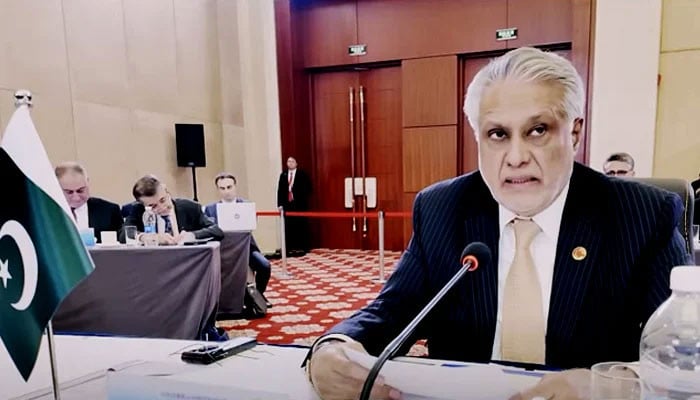At the Shanghai Cooperation Organisation (SCO) Council of Foreign Ministers’ meeting in China this week, Foreign Minister Ishaq Dar made Pakistan’s position crystal clear: the country remains fully committed to peace, the regional ceasefire and the principles of diplomacy but peace cannot survive if coercion and aggression are allowed to become “standard tools of statecraft”. His words come at a critical moment for the Subcontinent, following months of heightened tensions between two nuclear-armed neighbours. A US-brokered ceasefire agreement on May 10 brought a temporary halt to the hostilities. Since then, Pakistan has maintained a restrained and responsible posture despite continued provocations from across the border. FM Dar reiterated at the SCO meeting that Pakistan believes in a balanced security environment and the resolution of disputes through dialogue and diplomacy, not conflict and confrontation. He called for all states to adhere strictly to bilateral agreements, describing this as a prerequisite for restoring regional confidence and avoiding future escalations.
India, meanwhile, has continued to behave in bad faith. During the recent tensions, it unilaterally suspended the long-standing Indus Waters Treaty (IWT). However, the Permanent Court of Arbitration at The Hague recently issued a supplemental award in Pakistan’s favour. Pakistan has now rightly called on India to resume the normal functioning of the IWT and to honour its treaty obligations fully and faithfully. In stark contrast to Pakistan’s consistent calls for peace and cooperation, Indian officials have indulged in provocative rhetoric. Indian Foreign Minister S Jaishankar used his address at the SCO to raise the Pahalgam attack again and to call for an uncompromising stance on terrorism. FM Dar responded appropriately, condemning all forms of terrorism – including state terrorism – and stating that “we must shun the use of terrorism for political purposes and combat this menace through a cooperative approach, including addressing its root causes”.
While India has failed to provide any evidence linking Pakistan to the Pahalgam incident, Pakistan has produced substantial evidence of Indian-sponsored terrorism on its soil, especially in Balochistan. The Baloch Liberation Army (BLA), which has carried out numerous attacks against civilians and security forces, has been funded, trained and logistically supported by Indian agencies. The BLA has also been behind multiple deadly attacks on Chinese nationals in Pakistan, further exposing the depth of Indian involvement in destabilising the region. Despite this, it is India that continues to behave like an aggrieved party, adopting a petulant and arrogant posture in international forums. It has refused impartial investigations, undermined bilateral treaties and glossed over its own aggressive actions. As FM Dar emphasised, regional platforms like the SCO must remain committed to mutual respect, sovereign equality and lawful dispute resolution. Pakistan has extended the olive branch repeatedly. It has offered to engage in dialogue on all outstanding issues including Kashmir, terrorism and water. The question now is whether India is willing to act like the responsible regional power it claims to be.
